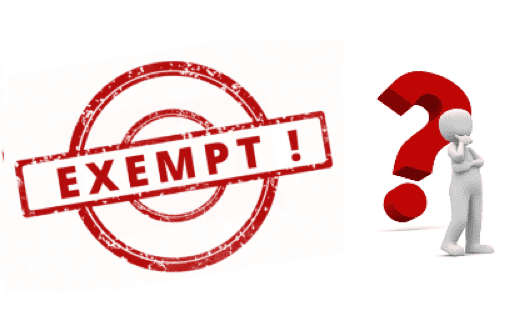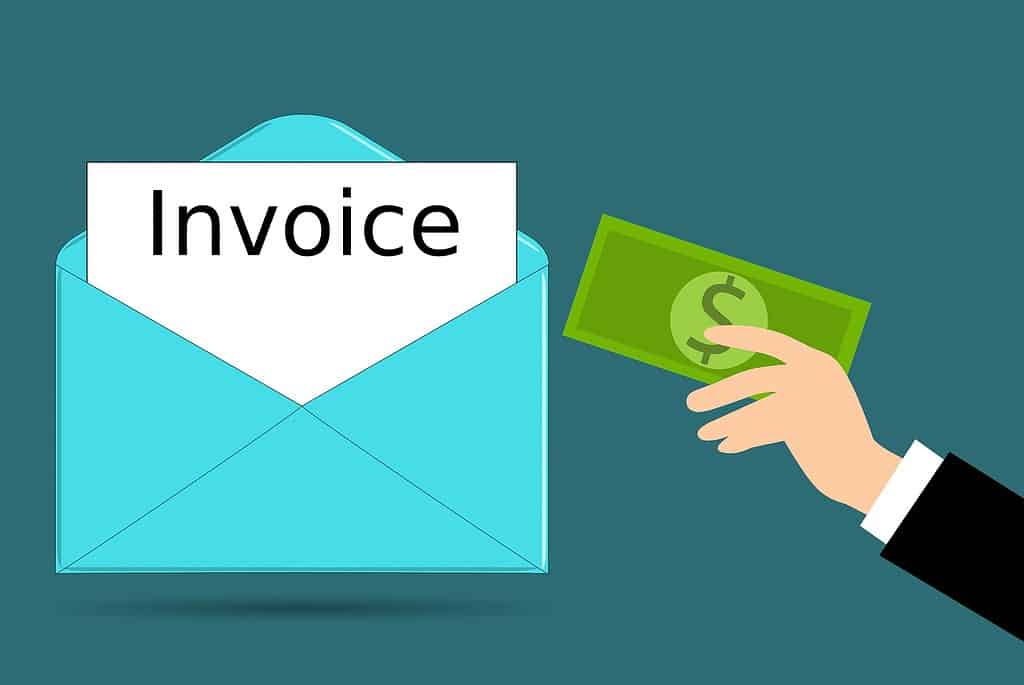
In the day-to-day practice of GST, a question comes to every desk whether provisions of E-invoicing are applicable for Exempt Supply or not. Do taxpayers need to report a Bill of Supply on the e-invoice Portal?
Today I am presenting this blog on the above subject in the purview of applicable sections and rules of GST Law.
Highlights
Let’s take a recap of notifications issued from time to time regarding applicability and changes prescribed for Turnover Limits to widen the scope of e-invoicing.
Recap- Notifications on E-Invoicing
| Notification | Guideline |
| Notification No. 13/2020 dated 21st Mar 2020 | E-invoicing was made mandatory for businesses with turnover higher than Rs.100 crore in a year. This was put to effect from 01st October 2020. |
| Notification No. 60/2020 dated 30th Jul 2020 | A new e-invoice format was notified with 20 new fields, and 13 fields were removed. |
| Notification No. 61/2020 dated 30th Jul 2020 | The turnover limit was increased from Rs.100 crore to Rs.500 crore to restrict the applicability. |
| Notification No. 70/2020 dated 30th Sep 2020 | Amendment in original notification 13/2020 by changing the determination of turnover from current FY to turnover of any preceding FY from 2017-2018. |
| Notification No. 88/2020 dated 10th Nov 2020 | Change in original notification 13/2020 to restore the turnover limit to Rs.100 crores from Rs.500 crore. |
| Notification No. 05/2021 dated 08th Mar 2021 | Change in Original notification 13/2020 to further reduce the turnover limit from Rs. 20 Crore to Rs. 10 Crore the extend the applicability to more taxpayers |
| Notification 23/2021 on 1st June 2021 | Extension of exemption to government departments and local authorities. |
| Notification 01/2022 on 24th February 2022 | Change in original notification 13/2020 to further reduce the turnover limit to Rs.20 crore from Rs.50 crore to extend the applicability to more taxpayers. |
| Notification 17/2022 on 01st August 2022 | Change in Original notification 13/2020 to further reduce the turnover limit from Rs. 20 Crore to Rs. 10 Crore the extend the applicability to more taxpayers |
Initially, e- Invoicing was made applicable on businesses having aggregate turnover exceeding Rs. 100. Crore in a year and they were supposed to report tax invoices on the E-invoicing portal w.e.f. 01-10-2020. Later limits were decreased and increased through notifications mentioned in the above table.
As of day, businesses that had achieved an aggregate turnover of Rs. 10 Crores in any preceding financial year from 2017-18 onward shall be required to prepare Invoice in terms of subrule (4) of Rule 48 of CGST Rules, 2017. In layman’s language, the Invoice is to be prepared and reported on the e-invoice portal.
Now doubt comes about what is an invoice and when it is required to be issued. Section 2(66) of the CGST Act, 2017 says “Unless the context otherwise requires,- “Invoice” or “tax invoice” means the tax invoice referred to in Section 31;
So, Section 31 of the CGST Act. 2017 is an appropriate section to move further.
Section 31 of the CGST Act, 2017

Section 31 of the CGST Act, 2017 deals with Tax invoices. Let’s understand what section 31 says about the conditions where a registered person is required to issue a Tax invoice. Extracts of the relevant portion of Section 31 is taken here:-
Section 31. Tax invoice
(1) A registered person supplying taxable goods shall, before or at the time of,—
(a) removal of goods for supply to the recipient, where the supply involves movement of goods; or
(b) delivery of goods or making available thereof to the recipient, in any other case,
issue a tax invoice showing the description, quantity and value of goods, the tax charged thereon and such other particulars as may be prescribed [See Rule 46, Rule 46A & Rule 48]
Provided that the Government may, on the recommendations of the Council, by notification, specify the categories of goods or supplies in respect of which a tax invoice shall be issued, within such time and in such manner as may be prescribed.
(2) A registered person supplying taxable services shall, before or after the provision of service but within a prescribed period, issue a tax invoice, showing the description, value, tax charged thereon and such other particulars as may be prescribed: [See Rule 46, Rule 46A & Rule 48]
[Provided that the Government may, on the recommendations of the Council, by notification,–
(3) Notwithstanding anything contained in sub-section (1) and (2)—
(a) a registered person …..
(b) a registered person ……
(c) a registered person supplying exempted goods or services or both or paying tax under the provisions of section 10 shall issue, instead of a tax invoice, a bill of supply containing such particulars and in such manner as may be prescribed: [See Rule 49] ]
From the above visit to Section 31, it becomes clear that this section deals with both types of supplies, i.e. taxable supply as well as exempt supply. Subsections (1) and (2) of Section 31 says about Tax Invoices while clause (c) of subsection(3) of Section 31 speaks on exempt supplies and documents to be issued in such cases which is “Bill of Supply”.
So, we have to select one out of two documents at time of supply :-
- Tax invoice – in case of taxable supplies
- Bill of Supply – In case of a supply of exempted goods and services
Now the question is whether taxpayers are required to report the Invoice / Bill of Supply on the e-invoice portal. CGST Rules under GST Law will help in this matter so let’s move to CGST Rules, 2017, and understand which document is required to be reported on the e-invoice portal and which one is exempt.
Relevant Rules under GST Law

CGST Rules, 2017 are the standard guidelines to perform smoothly under GST Act, and through these Rules, we shall understand the appropriate document, exempted from reporting on the e-invoice portal.
As per Rule 46 (r) of CGST Rules, 2017 Subject to rule 54, a tax invoice referred to in section 31 shall be issued by the registered person containing the particulars, namely,- Quick Reference code, having embedded Invoice Reference Number (IRN) in it, in case invoice has been issued in the manner prescribed under sub-rule (4) of rule 48”. (Notification No.72/2020-CT (dated 30th September 2020). with effect from 30th September 2020.)
Further as per Rule 46A of CGST Rules, 2017 Notwithstanding anything contained in Rule 46 or Rule 49 or Rule 54, where a registered person is supplying taxable as well as exempted goods or services or both to an unregistered person, a single “invoice-cum-bill of supply” may be issued for all such supplies.
As per Rule 48(4) of CGST Rules, 2017 The invoice shall be prepared by such class of registered persons as may be notified by the Government, on the recommendations of the Council, by including such particulars contained in FORM GST INV-01 after obtaining an Invoice Reference Number by uploading information contained therein on the Common Goods and Services Tax Electronic Portal in such manner and subject to such conditions and restrictions as may be specified in the notification. “Notification No.68/2019 Central Tax dated 13th December, 2019”
“Provided that the Commissioner may, on the recommendations of the Council, by notification, exempt a person or a class of registered persons from issuance of invoice under this sub-rule for a specified period, subject to such conditions and restrictions as may be specified in the said notification”.
(5) Every invoice issued by a person to whom sub-rule (4) applies in any manner other than the manner specified in the said sub-rule shall not be treated as an invoice.
From the reading of the above CGST Rules, it can be concluded that the tax invoice is required to be uploaded on the e-invoice portal, and if the taxpayer does not report his tax invoice as per the prescribed rules, the said invoice/tax invoice shall not be treated as an Invoice which means the recipient of such invoice shall not be able to take the input tax credit on such invoice as the identity of such invoice shall be treated as “nill“
Now it is time to know about the procedure to follow at the time of issuance of the Bill of Supply. Rule 49 of the CGST Act will help to understand the procedure.
Rule 49 – Bill of Supply

A bill of supply referred to in clause (c) of sub-section (3) of section 31 shall be issued by the supplier containing the following details, namely,-
a. name, address and Goods and Services Tax Identification Number of the supplier;
b. a consecutive serial number not exceeding sixteen characters, in one or multiple series, containing alphabets or numerals or special characters – hyphen or dash and slash symbolised as “-” and “/” respectively, and any combination thereof, unique for a financial year
c. date of its issue;
d. name, address and Goods and Services Tax Identification Number or Unique Identity Number, if registered, of the recipient;
e. Harmonised System of Nomenclature Code for goods or services;
f. description of goods or services or both;
g. value of supply of goods or services or both taking into account discount or abatement, if any; and
h. signature or digital signature of the supplier or his authorized representative:
Provided that the provisos to rule 46 shall, mutatis mutandis, apply to the bill of supply issued under this rule:
Provided further that any tax invoice or any other similar document issued under any other Act for the time being in force in respect of any non-taxable supply shall be treated as a bill of supply for the purposes of the Act
Provided also that the signature or digital signature of the supplier or his authorized v representative shall not be required in the case of issuance of an electronic bill of supply in accordance with the provisions of the Information Technology Act, 2000 (21 of 2000).
Provided also that the Government may, by notification, on the recommendations of the Council, and subject to such conditions and restrictions as mentioned therein, specify that the bill of supply shall have Quick Response (QR) code.
After analysis of Rule 49, it is crystal clear that despite of applicability of Rule 46 which applies to Tax Invoice as well as Bill of supply, there is a proviso given under Rule 49 that exempts reporting of Bill of Supply on the e-Invoice Portal
Conclusion
In view of subsections (1), (2), and (3)(C) of Section 31 of CGST Act 2017 and Rule 46(r), Rule 46A, Rule 48(4), Rule 48(5), and Rule 49 of CGST Rules, 2017, the Invoice Reference Number (IRN) is required only for Tax Invoices or we can say that tax invoices/ invoices which includes taxable supplies are required to be reported on the e-invoice portal. Under Rule 49, for the supply of non-taxable/ exempted goods, the requirement of IRN is not prescribed. As IRN relates to Tax Invoices for the supply of taxable goods, it can be concluded here that the applicability of E invoice does not Cover Exempted Goods and therefore Bill of Supply shall be issued without IRN.
Disclaimer
The information provided in the Article is the views of Author’s in his individual capacity and purpose is to provide general information about the topic and applicable Indian Law. Information provided in the Article is not a legal advice and should not be used as a substitute for specific legal advice. Author will not be responsible for any kind of loss, damage to any one in any manner on account of this Article. Readers of this article should contact their legal consultant instead of use of this Article as legal opinion.

I am really grateful to the owner of this site who has shared this impressiv paragraph at here.